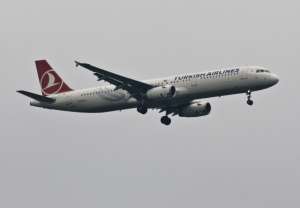The National Anti-Corruption Department (DNA) has a lot of work to do at Transelectrica, as it is currently conducting six investigations, market sources claim. The prosecutors of the DNA are allegedly investigating complaints received from Spanish investors in the wind energy sector, who claim that they were denied the authorizations to connect to the grid or that they were asked to pay bribes for the issue of such authorizations. Another investigation allegedly concerns the rental contract between Transelectrica and Dagesh Rom, the owner of Platinum Center (the current headquarters of the energy carrier).
The prosecutors are also allegedly collecting information about irregularities in the import and export of energy, transit and the Balancing market (which do not concern acts of corruption at Transelectrica), according to our sources.
According to rumors inside Transelectrica, one of the people who filed a complaint with the DNA is Corneliu Dică, former administrator of Eolica Dobrogea.
Under his management, Eolica Dobrogea filed a lawsuit against Transelectrica, against Horia Hăhăianu, former CEO of Transelectrica, against Corneliu Ene, deputy CEO of the company, and the ANRE, because they have refused to issue a statement confirming that Eolica met the requirements for being allowed to connect to the grid the 600 MW wind park of Cogealac, without any valid reason for this refusal.
However, the shareholders of Eolica have announced in the beginning of the year that they have dropped the lawsuit in question, by which they were asking for 118 million Euros in annual damages. At the time, Eolica claimed that the lawsuit was initiated by administrator Corneliu Dică, without a legal basis and without the agreement of the shareholders. Eolica, a company with Swiss shareholders, has announced that Corneliu Dică, has decided to file lawsuits on behalf of Eolica Dobrogea, of his own accord against some institutions, entities and people in Romania, including Transelectrica and the ANRE.
"These actions were taken by the director without any legal basis, in violation of all the ethical and business codes, and without the agreement of our company as a majority shareholder which owns 95% of Eolica Dobrogea", a press release of the company said at the time.
In October 2012, Iberdrola announced it is unable to proceed further with the wind projects it had scheduled for the Romanian market, because of its partner Eolica, according to Adrian Goicea, the representative of the Spanish company in Romania. Iberdrola had previously announced it planned to develop projects in Romania with a total value of 2.5 billion Euros.
"We are not selling anything, but it's because of our partner Eolica, which hasn't honored its obligations, that we are unable to go further with them", Mr. Goicea said, without making any further comments.
In 2008, Iberdrola acquired from Eolica Dobrogea 50 wind farm projects, with a total capacity of 1,600 MW, and has announced that it would complete all the investments by 2017, in cooperation with Eolica. For now, Iberdrola is generating wind energy on the Romanian market in wind farms with a power of 80 MW, in the town of Mihai Viteazu, in the county of Constanţa.
The Ministry of the Economy said in May, that Romanian companies C-Tech and Rokura have concluded with Chinese wind turbine maker an agreement to supply equipment for 1,200 wind energy MW, which will be developed in Dobrogea. C-Tech, Rokura and Eolica Dobrogea are the local partners of Iberdrola.
• The rent paid by Transelectrica, carefully investigated
Our sources claim that the prosecutors of the DNA are also reviewing the decisions made by Transelectrica concerning the rental of its current headquarters, as there have been accusations that the company has paid twice the going rate for rent at the time it signed the contract (2009).
Transelectrica was forced to move from Millenium Business Center, where it had rented 4,600 mp, following a fire in that building. In July 2009, the Board of Directors rejected the plan to rent a space of 7,700 sqm, claiming that the offer had been made at a price of about 20 Euros, while the market price was about 10 Euros/sqm/month. Later, in November 2009, the members of the Board of Directors (Florin Mârza, Gheorghe Seculici, Adrian Băicuşi) have approved the renting at a price of approximately 20 Euros/sqm of the Platinum Center building, paying in advance the rent for five months, money which Dagesh Rom allegedly used to complete the works on the development of the project. The rental contract was signed for a five-year period, and the losses caused to Transelectrica are estimated at approximately 4.6 million Euros.
The management of Transelectrica at the time (Adrian Băicuşi) explained why the company went with Platinum Center: five bids were submitted, of which some did not meet the requirements of Transelectrica (central-ultracentral area), and one investor did not respond to the clarifications. The only bidder left in the race was Dagesh Rom, with a price of 16.9 Euros/sqm/month plus VAT for rental, as well as 3.6 Euros/sqm plus VAT as management fee.
Transelectrica said that it needed to urgently conclude a contract for the rental of a new headquarters (the old headquarter had become completely unusable after the fire), and also mentioned the fact that the other competitors of Dagesh Rom demanded higher prices per square meter (17-18 Euros/sqm). In the building which was destroyed in the fire, Transelectrica was paying approximately 21 Euros/month plus management fees.
Sources from within the company claim that the prosecutors are also investigating the need of Transelectrica to buy Platinum Center for 27 billion Euros (the report on the necessity of this acquisition and the first round of negotiations were made by former general manager Ion Marius Mateescu), which was considered overvalued for this period.
• Some of the energy providers allegedly evaded some taxes
According to the quoted sources, the investigations of the DNA also concern, the import-export operations which took place between 2009 and 2011, as well as the transit of electricity. It would seem that some of the suppliers did not pay the price of the transport and system services pertaining to the import-export operations, as they reported the activity as transit instead (which is exempt from taxes). Thus, Transelectrica lost approximately 30 million Euros.
The prosecutors of the DNA were informed that in 2010, some energy traders (including Rudnap, EFT, Edison Trading and Statkraft) have considerably reduced their export operations (40%), and instead reported spectacular increases (about six-fold) in their transit, precisely to avoid paying the afferent taxes, sources at Transelectrica also say.
The prosecutors are now investigating the legality of these operations and are compiling data concerning the nature of the operations made by the suppliers in question.
















































